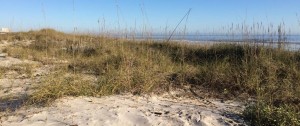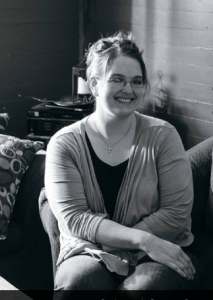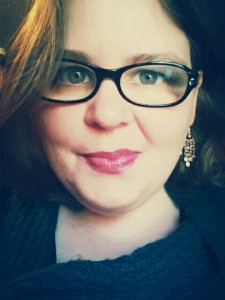Looking back, that empty booth across the table from me was just the next in a long line of red flags and warning signs I rationalized away. This time, the reason for his absence was said to be a co-worker who needed someone to bail him out of jail. He wouldn’t be back in town until late, after dinner. It seems an outlandish story when I think about it today, one of many outlandish stories. Now I know some of these stories were lies.
I have no real frame of reference to know which ones were true, but to call them all lies seems the task of an uncharitable, bitter woman.
Regardless. That spring day I believed, or at least accepted, the story. Over the many years we were together, we always had a long distance relationship. That dinner date was no different. I drove two hours through central, rural, Georgia to get there. So, given the hour and my growling stomach, the best option seemed to be to just go ahead to dinner. Alone.
“Just one,” I said to the hostess. I settled into the booth and perused the menu. After I had ordered I took the ever-present novel out of my purse and began to read, stopping often to check to see if he had called. I was somewhat self-conscious about sitting at a table in a sit-down restaurant alone, but no one seemed to care at all. It dawned on me that my aloneness was awkward and uncomfortable only to me.
Inside my head I was fighting off the doubts and questions about my three-year-old relationship. I didn’t want to be alone, so it had been relatively easy to accept the cancelled plans and the strange stories. As I sat there alone at a restaurant table and no one looked at me in pity or shame, I began to wonder if perhaps alone on purpose would be a better option than alone again one more time because he failed to come through.
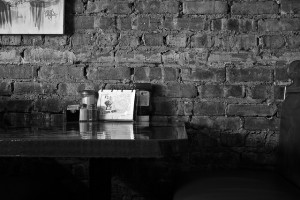 In retrospect I can see that, somehow, that dinner made me stronger. It was not the first time that our plans had not worked. It was not the first time he had changed things at the last minute, disappointing me. It was the first time I kept the plans anyway. The first time I still showed up, lived the moment, and went forward instead of letting my world stop. I could have grabbed a quick dinner in a drive-thru, eaten the fries as I navigated the road back home. But, I didn’t. I sat in the restaurant I had planned to go to and had the dinner I had planned to have that evening. I wasn’t trying to “still live life” or “embrace the moment” that night. It was simple, really: I was hungry and the restaurant was there.
In retrospect I can see that, somehow, that dinner made me stronger. It was not the first time that our plans had not worked. It was not the first time he had changed things at the last minute, disappointing me. It was the first time I kept the plans anyway. The first time I still showed up, lived the moment, and went forward instead of letting my world stop. I could have grabbed a quick dinner in a drive-thru, eaten the fries as I navigated the road back home. But, I didn’t. I sat in the restaurant I had planned to go to and had the dinner I had planned to have that evening. I wasn’t trying to “still live life” or “embrace the moment” that night. It was simple, really: I was hungry and the restaurant was there.
So, I sat at a table alone and ate dinner.
* * * * *
A few months later, I broke up with that boyfriend. Or, at least I tried to. The words “the end” were there but for reasons that exceed the time and space I have here, I cycled back into him in a destructive pattern over and over again. We were never “officially” together again – but the energies of my day and my mind and my heart were frequently still wrapped up in that toxic relationship.
A couple years later, still caught in the cycle of trying to really end that relationship, I moved to a town near Chicago, alone, for a job. I would often walk or take the L train to the movie theatre one evening a week and then to dinner afterwards. I’d sit in the dark theatre, no one on either side of me, and enjoy the show. Afterwards, I’d use the side exit that led out right by the door to a restaurant where I would walk in and say, “Just one.”
I usually had a book, but not always. Sometimes I would just eat my dinner with only my thoughts to keep me company. Sometimes I lingered: ordering an appetizer or a dessert or a drink. Sometimes I ate quickly before heading home. But I often thought of that first dinner alone and reminded myself it was good to know how to do to this.
Those years of dinner and movie dates with myself were part of the process of trying to get out of the cycle. I would sit there and remind myself: I can do this. I can eat alone. I can sit at this table and have dinner and have a life and I can be fine. I can move forward.
Eventually the cycle back into the toxic relationship stopped and I was free. Looking back I can only recall a handful of times in the past few years where I’ve eaten alone at a restaurant. It wasn’t an intentional choice to stop, but I guess that inner part of my soul knew I didn’t need those dates with myself as much anymore.
I rarely have to eat alone, but I know I can. And that has given me strength.
* * * * *
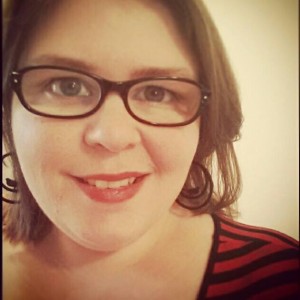 Nicole says her love language is “eat the food that I cook” and is never happier than when there is a crowd gathered around a table eating food that she had fun preparing. She is thankful for all the friends, neighbors, family members, co-workers, and casual acquaintances who have filled the tables of her life. Nicole works as a freelance editor specializing in theology and social ethics and writes about bodies, theology, and community at jnicolemorgan.com. She tweets away @jnicolemorgan
Nicole says her love language is “eat the food that I cook” and is never happier than when there is a crowd gathered around a table eating food that she had fun preparing. She is thankful for all the friends, neighbors, family members, co-workers, and casual acquaintances who have filled the tables of her life. Nicole works as a freelance editor specializing in theology and social ethics and writes about bodies, theology, and community at jnicolemorgan.com. She tweets away @jnicolemorgan
Restaurant photo by Bart Heird
